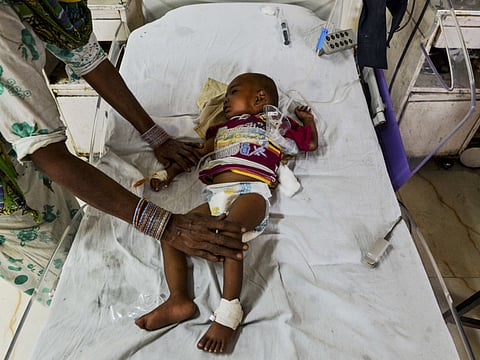Dengue in India: Time to take ‘Swachh Bharat’ drive seriously
Dismal figures for the cleanliness campaign may give the opposition a handle to criticise Modi, but the nation badly needs to address this issue

The surveys and online polls that throw up dismal figures in terms of the success of Swachh Bharat Abhiyan (clean India mission) may well give the opposition in India a handle to criticise the pet project of Prime Minister Narendra Modi.
But sadly, what they do not realise is that the cleanliness programme that the prime minister initiated on the birth anniversary of Mahatma Gandhi last year is something India urgently needs.
The project revolves around the fact that several diseases can be stamped out simply by improving sanitation in India. All sorts of disease-causing bugs, viruses, bacteria, protozoa and parasitic worms found in the faeces of infected people find their way into people’s bodies through contaminated soil and water and food handled by infected people.
Added to that is mosquitoes breeding in stagnant and fresh waters — the primary reason for the thriving of the dengue-transmitting Aedes Aegypti mosquitoes. Not to mention, of course, the algae and fungi in neglected surroundings, lack of safe drinking water and absence of toilets and sewerage facilities.
Over years, India has been a witness to the outbreak of several diseases, some of which include Ascariasis (roundworm infection), campylobacteriosis (diarrhoea triggered by gastrointestinal tract), cholera and cyanobacteria toxins and, last but not the least, dengue.
Virologists say that the current outbreak of dengue is the worst in five years because of the combination of Strain 2 and Strain 4 of dengue in circulation. Dengue Type-4 is a rarer and a stronger strain, which has not gripped the national capital of New Delhi since 2003. Its symptoms include fever with shock and an alarming drop in platelet count.
Except for a dip in 2011, the number of dengue cases in India has been steadily rising since 2007, according to the World Health Organisation.
There is no dedicated treatment for the virus and infected patients are generally asked to rest, drink a lot of fluids and take paracetamols to bring down the fever and reduce joint pains.
While it is pertinent to contain the spread of dengue and call for modalities to be charted out to improve sanitation, the crisis is being politicised. Veteran politicians have conveniently given the sanitation factor the miss and are on a blame game. Everyone in India seems to be locked in a pitched battle with one other rather than fighting dengue that has resulted in so many deaths.
Even if a portion of the several thousand billion rupees that are spent by political parties for publicity is diverted towards improving cleanliness, people could be free of sanitation-related diseases that have been devouring lives.
One of the biggest complications in dengue is fever-induced dehydration, which leads to seizures. While clean drinking water is a dire need, the water dispensing machines in public places are a sham. Although government functionaries have found it convenient to blame the hospitals for alleged negligence, not much thought goes into addressing the inadequacies.
There is a need for the government machinery to improve the technology and upgrade its skills so as to improve the actual delivery of sanitation services at the grass roots level. As of now, there seems to be a huge gap in terms of those responsible for collection, transportation and treatment of both solid and liquid waste in urban areas.
As per the latest government data, 142,000 tonnes of solid waste was generated per day in urban areas in July and only 15.33 per cent of that was processed, indicating how woefully under-equipped the civic bodies are to handle such a mammoth task.
The heart-wrenching photograph of Syrian toddler Aylan Kurdi, a refugee, who had washed up on a beach in Turkey, rightly shook the entire world. Sadly, the lives that are being lost in Delhi, unreasonably and due to preventable diseases, have failed to move those in the public health system in India. Caught between the ineptness of the government machinery and those at the power centre are the hapless people who are fighting for their lives.
— IANS
Rajat Arora is an interventional cardiologist and medical director at Yashoda Hospitals in Delhi.



